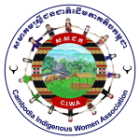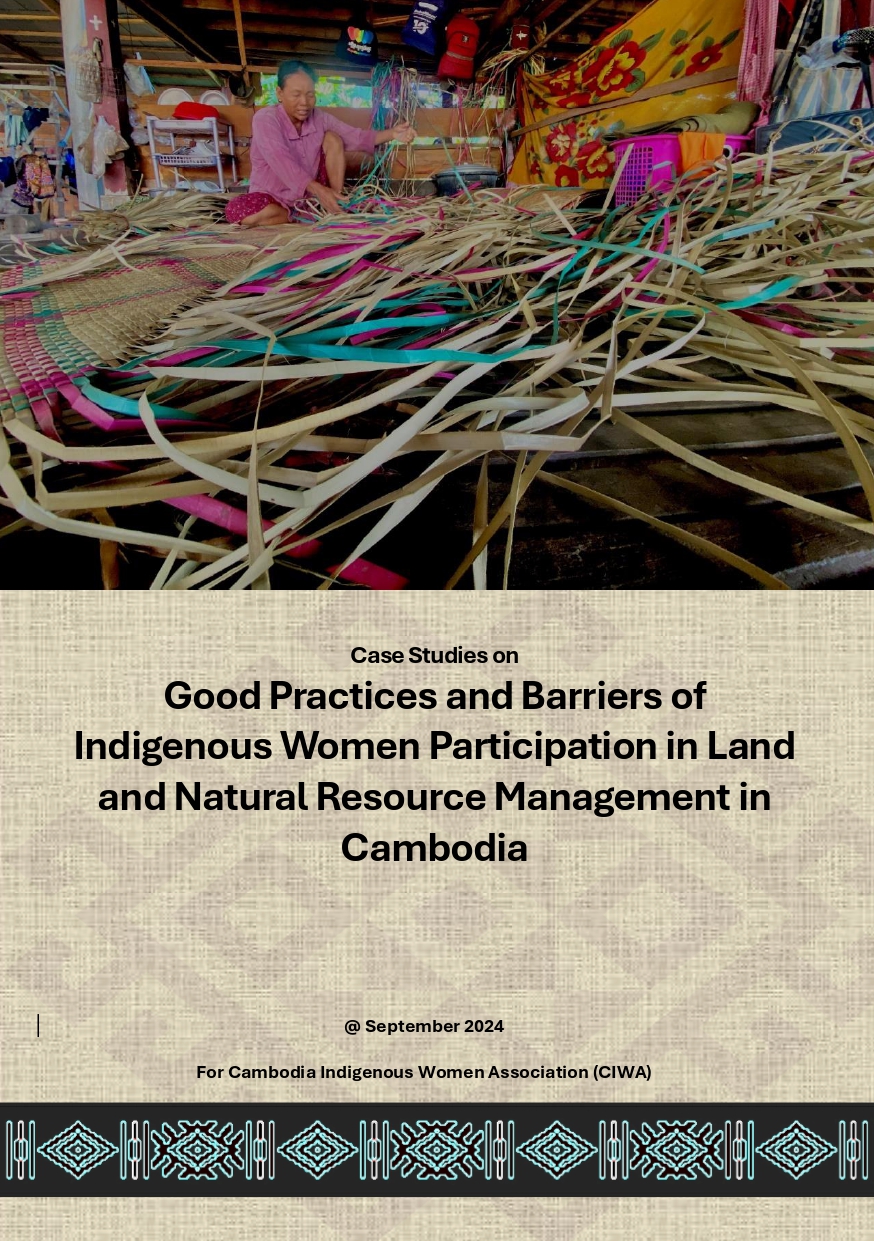- Version
- Download 2
- File Size 26.72 MB
- File Count 1
- Create Date 03.07.2025
- Last Updated 22.07.2025
Indigenous women in Cambodia face numerous challenges related to their roles in land and natural resource management, as well as issues surrounding violence and discrimination. These challenges are compounded by socio-economic factors and systemic inequalities.
Indigenous women play a crucial role in the preservation and transmission of traditional knowledge related to land and natural resources. They are often at the forefront of efforts to protect their communities' lands and forests, which are integral to their cultural identity and livelihoods. However, their leadership in these areas frequently exposes them to social threats, discrimination, and legal challenges. Women who advocate for land rights may face lawsuits, imprisonment, or violence, particularly in disputes involving corporations or government projects that encroach on their ancestral lands. Despite their significant contributions to sustainable land management and conservation, Indigenous women's voices are often marginalized in decision-making processes. The Cambodian Indigenous Peoples Alliance and other organizations emphasize that Indigenous women must be recognized as key stakeholders in discussions about land and resource management, given their deep knowledge of local ecosystems and sustainable practices.
Cambodia Indigenous Women Working Group (CIWA) was established on September 02, 2018 by 37 indigenous women from 8 different ethnic groups, including Kui, Bunong, Kroeung, Tampoun, Brao, Jarai, Por and Chong. The mission of CIWA is to see the indigenous women and girls have ownership and self-determination on land and natural resource management effectively with strong economic and being able to conserve and protect their rights to land, culture, tradition, and identity sustainably, living with dignity within the society of Cambodia.
To gain a better understanding of Indigenous women in land and natural resource management in the targeted communities, CIWA hired a group of consultants: Mr. Hean Bunhieng, a Kui Indigenous person, and Ms. Sean Sokny. Por indigenous woman. Their tasks are to document good practices, and challenges faced by indigenous women in relation to indigenous knowledge and land and natural resource management. The studies were conducted in ten indigenous communities in the province of Kamponthom, Preah Vihear, Stung Treng, Ratanakiri and Mondulkiri.
The objectives of this study are to document good practices and challenges faced by Indigenous women to facilitate learning, sharing, and enhancing their participation in land and natural resource management.
Download

